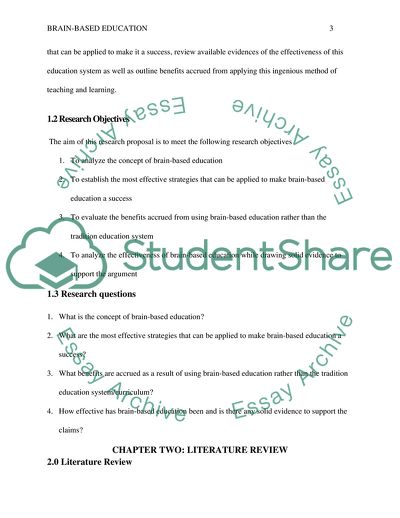Cite this document
(Brain-Based Education Research Proposal Example | Topics and Well Written Essays - 1750 words, n.d.)
Brain-Based Education Research Proposal Example | Topics and Well Written Essays - 1750 words. https://studentshare.org/education/1818772-brain-based-learning-and-teaching-strategies-techniques
Brain-Based Education Research Proposal Example | Topics and Well Written Essays - 1750 words. https://studentshare.org/education/1818772-brain-based-learning-and-teaching-strategies-techniques
(Brain-Based Education Research Proposal Example | Topics and Well Written Essays - 1750 Words)
Brain-Based Education Research Proposal Example | Topics and Well Written Essays - 1750 Words. https://studentshare.org/education/1818772-brain-based-learning-and-teaching-strategies-techniques.
Brain-Based Education Research Proposal Example | Topics and Well Written Essays - 1750 Words. https://studentshare.org/education/1818772-brain-based-learning-and-teaching-strategies-techniques.
“Brain-Based Education Research Proposal Example | Topics and Well Written Essays - 1750 Words”. https://studentshare.org/education/1818772-brain-based-learning-and-teaching-strategies-techniques.


